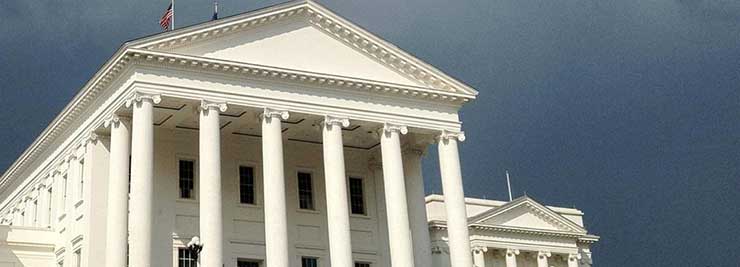By the end of Tuesday, February 16, the House of Delegates and the Senate must pass their respective bills and send them over to the other chamber in order for them to be considered for passage this year. We call this “Crossover.”
We will likely hear hundreds of bills today and tomorrow, some of which have substantial consequences for the Commonwealth.
Charter Schools
One of the more controversial bills is the proposed Constitutional Amendment that would allow the Commonwealth to override local governments’ decisions and require them to create Charter schools within their boundaries. Some of us in the legislature support the idea of Charter schools, but only if they are locally created and controlled. We have successful Charter schools in our area that provide options not available in traditional public schools. Data indicates that Charter schools work in some instances, but that is not always the case.
The proposed Constitutional amendment, sponsored by local delegate Rob Bell, would dramatically transform how Charter schools are approved in Virginia; it would grant the state Board of Education the power to overturn a local decision not to authorize a Charter school. The cost of operating the charter school, as a public school, will be partly borne by the locality even though it was imposed on them by the state. This classic example of an unfunded mandate could undermine budgetary efforts to increase funding for existing public schools. The amendment narrowly passed the House (50-47), and it is not clear if it will pass the Senate. If it does, it will be on the ballot for voters to decide in November.
COPN and Hospital Revenues
In another controversial and close vote, the House approved a significant change to the Commonwealth’s system for scrutinizing expansion of hospital or ambulatory services. Most citizens know very little about this, but it has important implications, especially in areas with multiple hospitals like Charlottesville-Albemarle. The “certificate of public need” (COPN) process is designed to ensure that hospital services are not overbuilt in a community, and a certificate is only issued when there is a demonstrated need in the region. Some critics claim the COPN process stifles competition; however, hospitals are concerned that without state oversight, other providers will offer only the most profitable services to patients. This would leave hospitals with less revenue to provide levels of charity care, particularly in the emergency room, and could lead to increased costs for other services so the hospital can remain solvent. The risk posed by repeal of COPN to rural hospitals, which operate on very tight margins, is especially troubling, and the people most likely to be caught in the crossfire are the poor, who depend on hospitals for indigent care because they lack insurance.
I support reform of the COPN process, not its elimination, and only if it is part of reforms that provide greater access to health facilities for indigent and uninsured citizens. Therefore, I voted against full repeal. The bill to repeal COPN passed by a narrow margin in the House and faces an uncertain future in the Senate.
Update on My Bills
My bill (HB936), which gives local school divisions more flexibility in helping students with limited English proficiency to graduate from high school, has passed the House and is now headed for the Senate. Another of my initiatives, designed to extend foster care to youngsters who are over the age of 18, is still alive in the House Appropriations Committee.
Cars of the Future
Last week, I was given the opportunity to ride in a self-directed, driverless automobile, a prototype being developed by Audi that may be on the roads in the next five years. It was an amazing experience. You simply push two buttons, take your hands off the wheel, and the vehicle drives itself. We traveled 65 MPH on I-64, and through the use of almost 30 separate sensors on the vehicle, we were able to change lanes and pass without incident, accelerate and decelerate to take account of the traffic, and negotiate curves smoothly without departing from the lane. Audi is not, of course, the only manufacturer working on these vehicles, but we can expect a day in the not-too-distant future when the technology will not only make travel safer but more enjoyable as well. Just in case you are wondering, you are not permitted to fall asleep while you are at the wheel.

